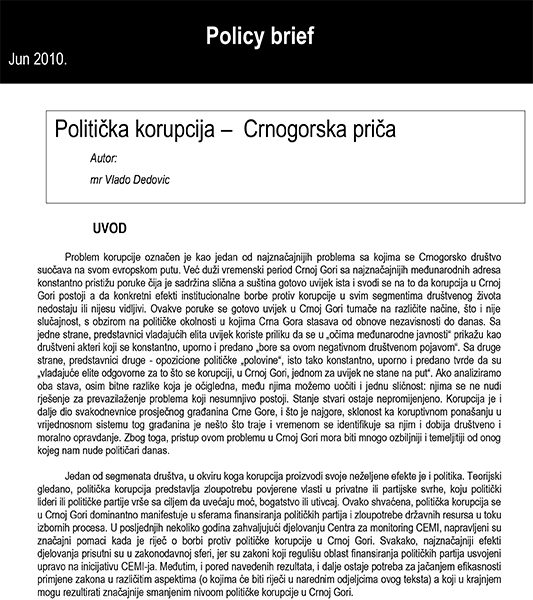The issue of corruption stands out as one of the most pressing challenges confronting Montenegrin society on its path towards European integration. Over an extended period, Montenegro has consistently received messages from key international entities, echoing similar sentiments and highlighting the enduring presence of corruption within the country. Despite these recurrent admonitions, the concrete outcomes of institutional efforts to combat corruption across various spheres of social life remain elusive or inadequately visible. Such messages are subject to varied interpretations within Montenegro, reflecting the complex political landscape that has characterized the nation since its restoration of independence. On one hand, representatives of the ruling elite seize upon these opportunities to portray themselves as vigilant adversaries relentlessly combatting this societal scourge on the global stage. Conversely, opposition figures persistently lay blame at the feet of the ruling establishment, decrying their failure to decisively eradicate corruption from Montenegrin society. Upon closer scrutiny, beyond the evident disparity between these positions, a commonality emerges: neither offers a viable solution to address the entrenched issue at hand. Consequently, the status quo remains unaltered, with corruption persisting as an ever-present facet of daily life for the average Montenegrin citizen. Even more concerning is the normalization of corrupt behavior within the societal fabric, perpetuating its presence over time and imbuing it with social and moral legitimacy. Therefore, tackling corruption in Montenegro demands a far more rigorous and comprehensive approach than that currently espoused by political leaders.
Political corruption - Montenegrin story
06. Jan. 2017. in publications
